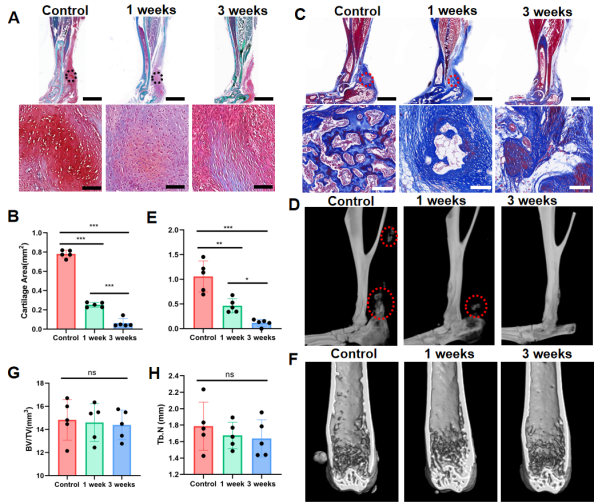German Congress of Orthopaedics and Traumatology (DKOU 2025)
Deutscher Kongress für Orthopädie und Unfallchirurgie 2025 (DKOU 2025)
Sustained notch signaling inhibition prevents traumatic heterotopic ossification
Text
Objectives and questions: Traumatic heterotopic ossification (THO) is a devastating sequela following traumatic injuries and orthopedic surgeries. To date, the exact molecular mechanism of THO formation is still unclear, which hinders the development of effective treatments. The process of THO formation is believed to recapitulate a series of spatiotemporal cellular and signaling events that occur during skeletal development. The Notch signaling pathway is a critical genetic regulator in embryological bone development and fracture healing. However, few data are available concerning whether Notch signaling regulates THO development and maturation.
Material and methods: We firstly detected the expressions of Notch target genes in both mouse and human THO samples with quantitative RT-PCR and immunohistochemistry. Then, tissue-resident mesenchymal progenitor cells (TMPCs) were isolated, and the abilities of the proliferation and osteogenic and chondrogenic differentiation of TMPCs were examined under the intervention of the gamma-secretase inhibitor-DAPT at different time points. Finally, DAPT was also administrated in THO mice by burn and Achilles tenotomy injury, and ectopic cartilage and bone formation were monitored by histology and micro-CT.
Results: Several Notch target genes were upregulated in both mouse and human THO tissues. Sustained Notch signaling inhibition by DAPT reduced proliferation, osteogenic and chondrogenic differentiation of TMPCs in a time-dependent manner. Moreover, DAPT administration within 3 weeks could inhibit ectopic cartilage and bone formation in a mouse THO model without affecting the total body bone mass (Figure 1 [Fig. 1]).
Figure 1: Sustained DAPT treatment inhibits ectopic cartilage and bone formation in THO model mice
Discussion and conclusions: The Notch signaling serves as an important therapeutic target during THO formation. And sustained gamma-secretase inhibition by DAPT has great potential in repressing chondrogenic and osteogenic differentiation of TMPCs, as well as inhibited ectopic cartilage and bone formation in vivo.




